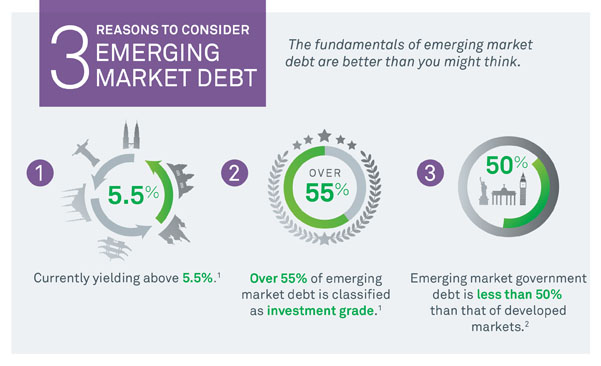
Real estate investment Trusts (REITs), are trusts which invest in real-estate. The IRS revenue code sets out requirements for REITs. They must have at the least 100 shareholders, and invest at 75% in realty. They must also be able to derive 75% from real estate. They must also pay shareholders at least 90% of their taxable income. REITs also are exempt from corporate tax. Therefore, REITs are exempt from corporate taxes and do not pay tax on any income they generate.
Tax advantages
The primary tax advantage of REIT investing is the avoidance of double taxation, which occurs when profits are first taxed at the corporate level, and then taxed again when distributed to investors. Most US businesses, on the other hand, don't pay corporate income tax and instead pass profits on to their owners, or members, under federal tax laws. Pass-through businesses can be sole proprietorships, partnerships or limited liability companies.

There are some risks
There are many potential risks with REITs. The biggest risk is that REITs are costly, and can't support sustained growth without accessing public capital. Reitually, REITs are not property investments. The risk of losing capital markets access is high. If the REIT is able to access new capital, high valuations will be sustainable. The risks of reit investing are limited if investors take the time to learn about each individual REIT and the properties it holds.
Capital investment costs
It is important to calculate the total returns that investors should expect from REITs and the cost of capital, which refers to the interest rate and the debt that must be paid to invest in real estate. An article published in January 1998 by Institutional Real Estate Securities stated that few REITs could achieve a return below 12 percent. According to the article, equity capital costs may be lower than 12 per cent if investors accept low interest rates and modest returns from their other investments.
Diversification
Real estate ETFs can be used by investors who are looking for diversification. These funds have a tremendous categorical diversification opportunity. Preferred ETFs enable ongoing capital growth no matter how healthy or unhealthy the issuing business is. Growth-based ETFs offer accurate projections of long-term growth. International ETFs give investors large diversification potentials in markets with long-term growth potential. Diversification with real estate ETFs is the key to real property investing success.

Protection from inflation
Reit investment is an excellent way for investors to safeguard their portfolios from inflation. Inflation is a significant problem in the commercial realty industry. The recovery should result in rising rental income and increasing value of the underlying assets. However, there are some REITs that provide implicit inflation protection. This applies especially to healthcare and care landlords. Target Healthcare, a Care Home Specialist, increases its rents to match the Retail Price Index (RPI) approximately every three year. Primary Health Properties, another landlord in the health care sector, has a portion of its leases linked with the RPI index. They also pay generously inflation-linked dividends.
FAQ
Why is a stock called security.
Security is an investment instrument whose value depends on another company. It can be issued by a corporation (e.g. shares), government (e.g. bonds), or another entity (e.g. preferred stocks). The issuer promises to pay dividends and repay debt obligations to creditors. Investors may also be entitled to capital return if the value of the underlying asset falls.
How do I choose a good investment company?
Look for one that charges competitive fees, offers high-quality management and has a diverse portfolio. The type of security that is held in your account usually determines the fee. Some companies don't charge fees to hold cash, while others charge a flat annual fee regardless of the amount that you deposit. Others charge a percentage on your total assets.
It's also worth checking out their performance record. Poor track records may mean that a company is not suitable for you. Avoid low net asset value and volatile NAV companies.
It is also important to examine their investment philosophy. An investment company should be willing to take risks in order to achieve higher returns. If they aren't willing to take risk, they may not meet your expectations.
What is security on the stock market?
Security can be described as an asset that generates income. Shares in companies are the most popular type of security.
There are many types of securities that a company can issue, such as common stocks, preferred stocks and bonds.
The value of a share depends on the earnings per share (EPS) and dividends the company pays.
When you buy a share, you own part of the business and have a claim on future profits. You will receive money from the business if it pays dividends.
Your shares can be sold at any time.
How Does Inflation Affect the Stock Market?
The stock market is affected by inflation because investors need to pay for goods and services with dollars that are worth less each year. As prices rise, stocks fall. Stocks fall as a result.
Statistics
- Even if you find talent for trading stocks, allocating more than 10% of your portfolio to an individual stock can expose your savings to too much volatility. (nerdwallet.com)
- US resident who opens a new IBKR Pro individual or joint account receives a 0.25% rate reduction on margin loans. (nerdwallet.com)
- For instance, an individual or entity that owns 100,000 shares of a company with one million outstanding shares would have a 10% ownership stake. (investopedia.com)
- Individuals with very limited financial experience are either terrified by horror stories of average investors losing 50% of their portfolio value or are beguiled by "hot tips" that bear the promise of huge rewards but seldom pay off. (investopedia.com)
External Links
How To
How can I invest into bonds?
An investment fund, also known as a bond, is required to be purchased. You will be paid back at regular intervals despite low interest rates. You can earn money over time with these interest rates.
There are many options for investing in bonds.
-
Directly buy individual bonds
-
Purchase of shares in a bond investment
-
Investing through an investment bank or broker
-
Investing through an institution of finance
-
Investing in a pension.
-
Invest directly through a broker.
-
Investing via a mutual fund
-
Investing through a unit trust.
-
Investing via a life policy
-
Investing via a private equity fund
-
Investing via an index-linked fund
-
Investing through a hedge fund.